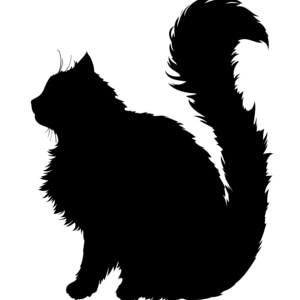My room was in the same wing as Genevieve’s quarters, which I suspected was intentional. I found her lady-in-waiting’s room, and the servants’ hallway to reach the quarters quickly. Convenient. Servants often could move around faster through a castle like this than nobles could. It would be helpful to be familiar with all the passageways like this.
From there, I made a quick scan of the other residential areas. I was pretty sure I located Arthur’s rooms by the sheer fanciness, then I saw the room owner enter and it turned out to be an older nobleman with a whole bevy of servants flocking after him, hurrying to do any word he suggested.
“He’s young, he should be more malleable,” the old nobleman was grumbling. “Why won’t he listen to me? His father did, he should too. He should all the more, even! I should be his primary advisor, yet he only smiles politely and then ignores my advice. The disrespect! I shall have words with Lord Bron, I think he will agree with me. We must pressure him to take our advice.”
I wasn’t a fan of Arthur, but this man rubbed me the wrong way. I was sitting in the window, unnoticed by his eyes, but after a quick glance around the room, I calmly hopped from the window to his desk and deliberately reached out with one paw, knocking his inkwell over onto the documents he’d had spread there.
He cursed, the servants jumped to try to save the paper, and I escaped in the chaos, pleased at randomly angering this annoying man. It was a small thing, but if he was going to be obnoxious, I might as well ruin his day for the fun of it.
I did end up finding Arthur eventually, in a room with what looked like a couple of his knights. His brows were furrowed as he listened to them discuss recent geist sightings, it sounded like.
“There were probably three dozen of them. The town said they set the fields on fire to stop them, but that means their harvests are gone. We’ve sent people out there, but nothing more to be seen.”
Arthur frowned, looking at a map. “There’s too many,” he murmured, his fingertips tracing different points in the map. “I’ve asked the nobles to assign some of their soldiers to patrol duty, trying to stop geists before they get close, but there’s so many. By the time we heard wind of any, it’s almost too late for our knights to reach there. We’ll have to do something more. Even with increasing our numbers with the addition of female knights, there’s not enough of us to patrol the entire country. We’re spread thin.”
Under the table he and his knights were using were several dogs. They raised their heads to look at me, one of them with a glint in its eye that told me it normally chased cats – and then, almost as one, they backed down, lowering their heads into a submissive position and remaining where they were.
I didn’t deal much with the domesticated non-magic animals. I saw them occasionally in the village I visited and knew of their existence, but I’d never paid much attention to dogs before, especially when I was in the form of a cat. Of course, most non-magic animals could sense the danger in Arcane creatures, even if they couldn’t identify why. It was one of the few clues humans had that an animal might be Arcane, if their domesticated animals started treating it oddly.
If Arthur’s dogs hung around him a lot, I probably couldn’t spy on him in cat form – eventually he or someone else would notice his dogs behaving weirdly around me and realize I was not what I seemed – and he’d most likely notice the addition of another dog. I’d have to learn more about Arthur from other means.
I left the king and his dogs alone, continuing my exploration and mental mapping of the castle. I found the Great Hall or whatever it was called, the place where most banquets, dances, and similar activities took place. I also found smaller rooms for dining and, of course, the kitchens.
The moment I entered the kitchens, one of the staff noticed me, made a noise to get my attention, and then tossed me a bit of food. I was somewhat baffled by this, given that the cats were supposed to be getting their food by killing the pests, but it was clear from a look around that the kitchen staff were extremely fond of cats. There were several of them lounging around, accepting the human attention and tidbits of food they were offered, looking very happy with their lot in life.
Come to think of it, the people looked pretty happy, too. They were chatting and didn’t seem stressed or unhappy, and their clothes were clean and well-tended to, something I wasn’t really expecting to see.
It told me something. If the people working for him were happy, that meant Arthur wasn’t all bad. You could learn a lot about a person in power by looking at their servants, and in this case…it did tell me something good about him. It told me that he wasn’t all talk with Genevieve and he treated his servants well enough that they were happy with their lives, even when spending hours in a hot kitchen.
Interesting information. He might genuinely respect commoners and the working class. Not “wild” teenage girls, but servants. Interesting.
After taste-testing some of the food – it was, as expected, quite good, but I wasn’t a huge food fan, instead pretty content with anything that filled me – I went outside, stretching my cat self before wandering along the top of the walls, watching the people in the various courtyards.
In one, the knights were training. I recognized a couple who had accompanied Arthur when I’d been kidnapped, but the fact that they were training with swords and spears and lances was a big clue anyway. As far as I knew, most people didn’t practice with such tools unless they were trying to learn to become a knight or soldier. These people, though, they were definitely knights.
I turned my attention to some of the female knights, feeling thoughtful. Genevieve had indicated they were fairly new additions to the knights, only recruited since Arthur’s ascension to the throne less than a year ago. You couldn’t pick up the training in that amount of time, not enough to learn how to be a knight. It took years to learn how to properly handle these weapons, and either Arthur was being very sloppy in accepting knights or these women had already been learning the weaponry long before they had a hope of actually being a knight.
I settled down on the stone, watching one of the knights. She was tall, buffer than most women, and very focused. She was also apparently quite intimidating to the knights who were sparring with her, even what looked like some very experienced knights. But with every match, she just nodded once to them in respect and then moved on, not taking a moment to relax or appreciate her victories.
Was she just obsessed, or was there more to it? I looked over at the other women. There weren’t many, only four, but they were all training harder than it looked like most of the men were. Was this because they weren’t as far along as the men, who most likely had been knights for longer, or because they had been given the rank of knight before they were ready? Or some other reason?
Watching all of the knights, I became convinced that Arthur hadn’t granted the women knighthood just for the appearance of having women knights – they knew what they were doing, and they were good at it. They probably hadn’t had the same training opportunities as their male counterparts until now, which might explain the focus on training now, or maybe they just wanted to prove that they deserved their place as knights. Either way, I had learned something new about Arthur.
Arthur valued excellence. He hadn’t given up that just to achieve his goal of adding women as knights – he’d found women who excelled and could accordingly satisfy his standards.
Interesting.
I eventually moved on, noting the various exits from the castle and planning to make my way into the town before I got distracted with what I assumed was the mage’s quarters.
I saw a man who walked and spoke with authority, supervising several young mages. Mages, but not Arcane. Except – except one. One of them was Arcane. I doubted the others were aware, and she fidgeted more than she needed to, suggesting that she was attempting to pretend to be a mage like all the others, but unintentionally brining more attention to herself with her nerves.
However, for her sake, I was glad that the leader didn’t seem to pay much attention to her fidgeting.
“People generally have an affinity for one type of magic,” he was explaining to the young mages. He had an extremely fancy robe on that likely signaled some official role or rank, but I didn’t know what it meant. I presumed he was teaching the new recruits by context, so probably someone of authority, even if his robes hadn’t screamed as much. “By now, you’ve all mastered the basics and should know what your affinity is for, or you wouldn’t have passed the test that allowed you to train to see if you can become a sorcerer.”
Sorcerer. I knew that one. It was a title reserved for those who fought alongside the knights in battle. Essentially a war mage, just with a fancy title. I didn’t understand the point of the title, but I did know it wasn’t handed out often and was apparently coveted by mages, since it ensured steady work and good pay.
The teacher looked around the group and made a “hurry up” motion. “Come on then, out with it.”
“I have an affinity for illusions!” A young man looked very proud of himself.
The older man, however, seemed less impressed. “Illusions. Not practical in day-to-day life. If you don’t succeed in becoming a sorcerer and using it in battle, you’re most likely to end up entertaining people on stage. A fairly useless magic as a whole.”
The now-abashed young man also seemed a bit resentful, but didn’t contradict him.
One mage noticed me and looked like she wanted to throw a rock in my direction – not a fan of cats, eh? – but she now turned her attention to the teacher and took a small step forward. “My affinity is divination.” She sounded almost smug.
“Divination. Practical, but only if you’re able to use it properly,” the older man warned. “Divination is also the most wildly misused magic – people don’t understand what they’re seeing, mistake the possible for the unavoidable or they mistake when in time an event may occur. It’s a tricky magic, but if you’re able to master it, you have many options beyond becoming a sorcerer. Of course, a divination sorcerer can be particularly helpful in preventing a surprise attack or even in predicting a battle’s events. Learn your affinity, study it until you know it better than you know yourself, and you will find yourself with a promising future.”
He turned to the next young mage.
“Formation magic,” the young man squeaked, looking almost frightened at the attention. “Sir.”
“Formations,” the older man mused. “Skilled formation mages are sometimes able to create walls to prevent enemies – not as long-lasting as those actually built from stone and mortar, but enough to slow an enemy down. They can also create shelter in storms or, on small levels, easily repair objects in homes. Even if you do not succeed as a sorcerer or even have much talent, your magic is enough to ensure you work for the rest of your life – people are always breaking things and needing mages to fix them. Formation mages are very popular throughout the lands.”
He kept going through the group, learning their affinities.
“Elemental magic,” he nodded after the Arcane girl told him her type of magic. That probably set her as a druid, then. Druids, despite being Arcane creatures, were able to use elemental magic more than arcane.
The teacher seemed pleased with her magical type. “Elemental magic is the most useful offensive magic, particularly for a sorcerer. Most sorcerers are, in fact, elemental users. I am, so are three of the past four sorcerers. The other was an arcane magic user,” he admitted, almost reluctantly.
An arcane magic user was different from an Arcane themselves, but some people still saw arcane magic users as too closely connected to the idea of the Arcane to support the magic division itself – many times, those who used arcane magic might be as ostracized as Arcane themselves. It was viewed as one of the least popular forms of magic, so to have an arcane magic user admitted as a sorcerer did speak volumes to the difference between Arthur and his father. It meant Arthur was willing to consider a connection to the Arcane as less reprehensible than Uther had.












Comments (6)
See all